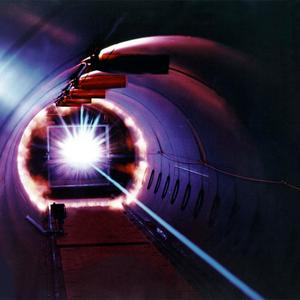Reconceptualizing War with Dr Ben Zweibelson
All comments and opinions are those of the individuals recorded; they do not reflect any official policy or position of the Department of Defense or U.S. government.Dr. Ben Zweibelson is an author, philosopher, and a retired Army Infantry Officer with multiple combat tours in Iraq and Afghanistan. Ben lectures and publishes on military strategy, operational planning, design thinking, and war philosophy. His latest book, Reconceptualizing War, was released on April 30th. He has published two other books on the military design movement and innovation in defence applications. Ben earned the Army’s Master Parachutist, Pathfinder, Air Assault, Expert and Combat Infantryman’s Badges, the Ranger Tab, and was awarded four Bronze Stars in combat. He resides in Colorado Springs with his wife and children. His hobbies include getting injured doing jiu-jitsu, snowboarding, and CrossFit.A magnum opus, a tour de force—Dr. Ben Zweibelson’s latest book, Reconceptualizing War, is all of these and more. I was fortunate enough to receive an advance copy, and it was a rich feast. If you’ve ever wondered what your favourite strategist, philosopher, or school of thought had to say about warfare, you’re more than likely to find them in the pages of Reconceptualizing War. From Clausewitz to Kant, Tolstoy, Engels, Mao, the Futurists, Marcuse, or Deleuze and Guattari—and several dozen more—every time I wondered if a thinker was about to appear, there they were. I especially appreciated how Reconceptualizing War complemented the aims of my Hypervelocity podcast: going deeper to examine the philosophical underpinnings of conflict. The cover art goes hard too. Our conversation delves into the themes of reconceptualising war through various philosophical and theoretical lenses. Dr. Ben Zweibelson discusses the importance of social paradigms, the historical context of anti-fascism, and the evolution of ideological movements like Antifa. The dialogue also explores the theoretical connections between Kant, Clausewitz, and contemporary armed movements, as well as the implications of game theory and the future of warfare in the age of artificial intelligence.Chapters00:00 – Introduction to Reconceptualizing War02:44 – Theoretical Foundations: Burrell, Morgan, and Rapoport10:48 – Kant, Clausewitz, and Contemporary Movements17:01 – Antifa: Historical Context and Modern Implications26:03 – Understanding War: Paradigms and Frameworks37:48 – Radical Structuralism and Omnism in Warfare47:49 – The Marxist Vision of Utopia50:15 – The Enduring Nature of War52:04 – Game Theory and Warfare57:57 – Complexity Science and the Afghan Conflict01:06:28 – Radical Structuralism and Revolutionary Success01:14:56 – Détente and Radical Structuralism01:21:47 – Interpretivism and the Limitations of DiagramsAll comments and opinions are those of the individuals recorded; they do not reflect any official policy or position of the Department of Defense or U.S. government.
